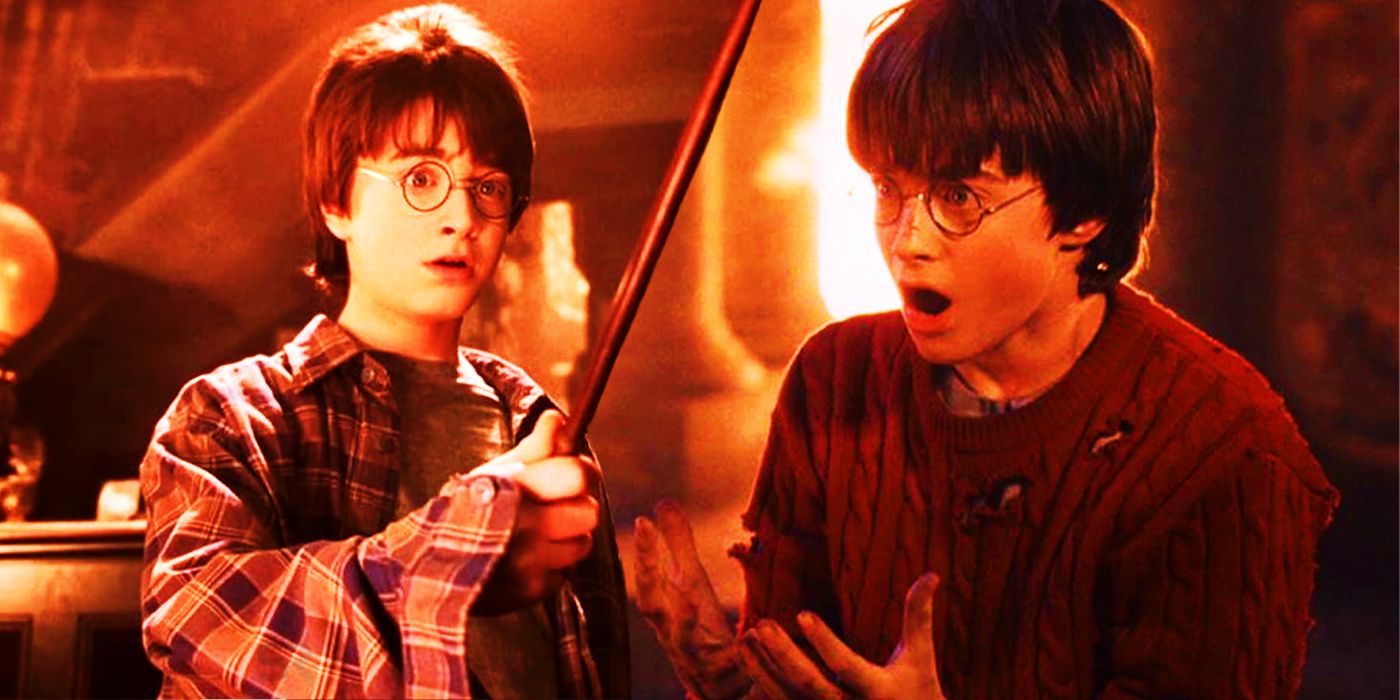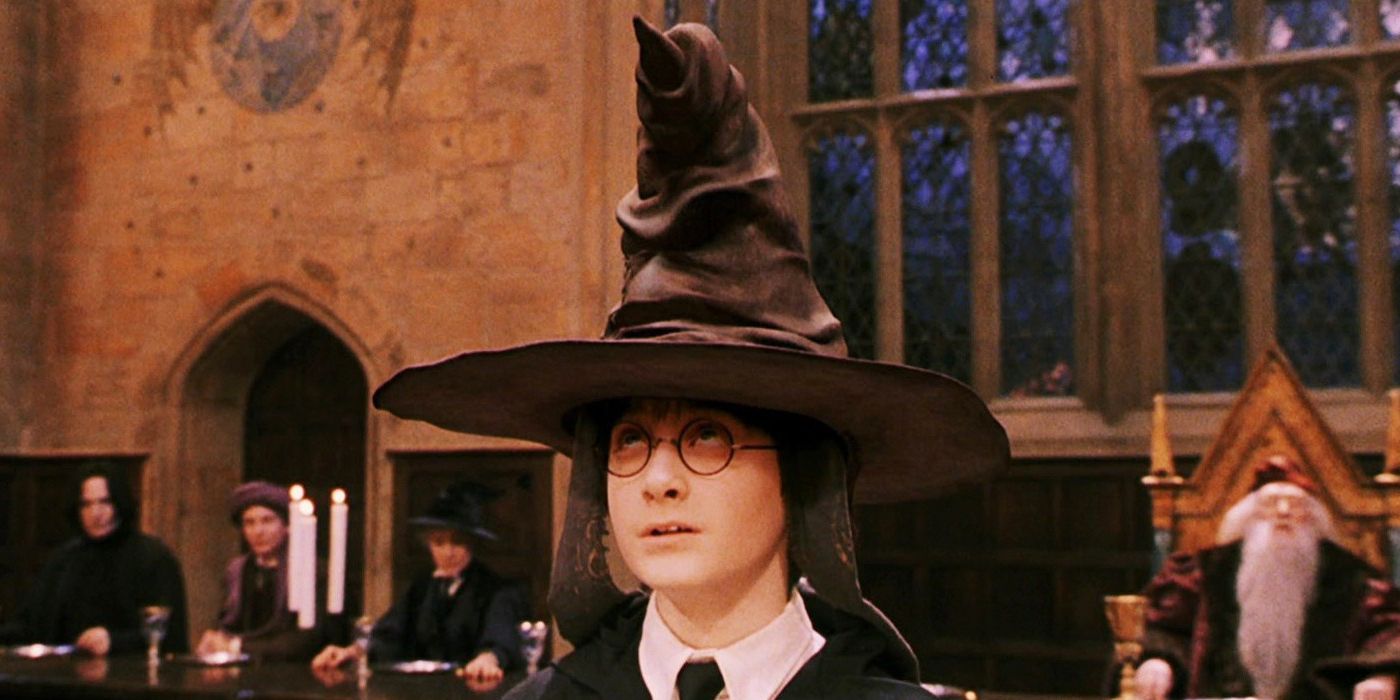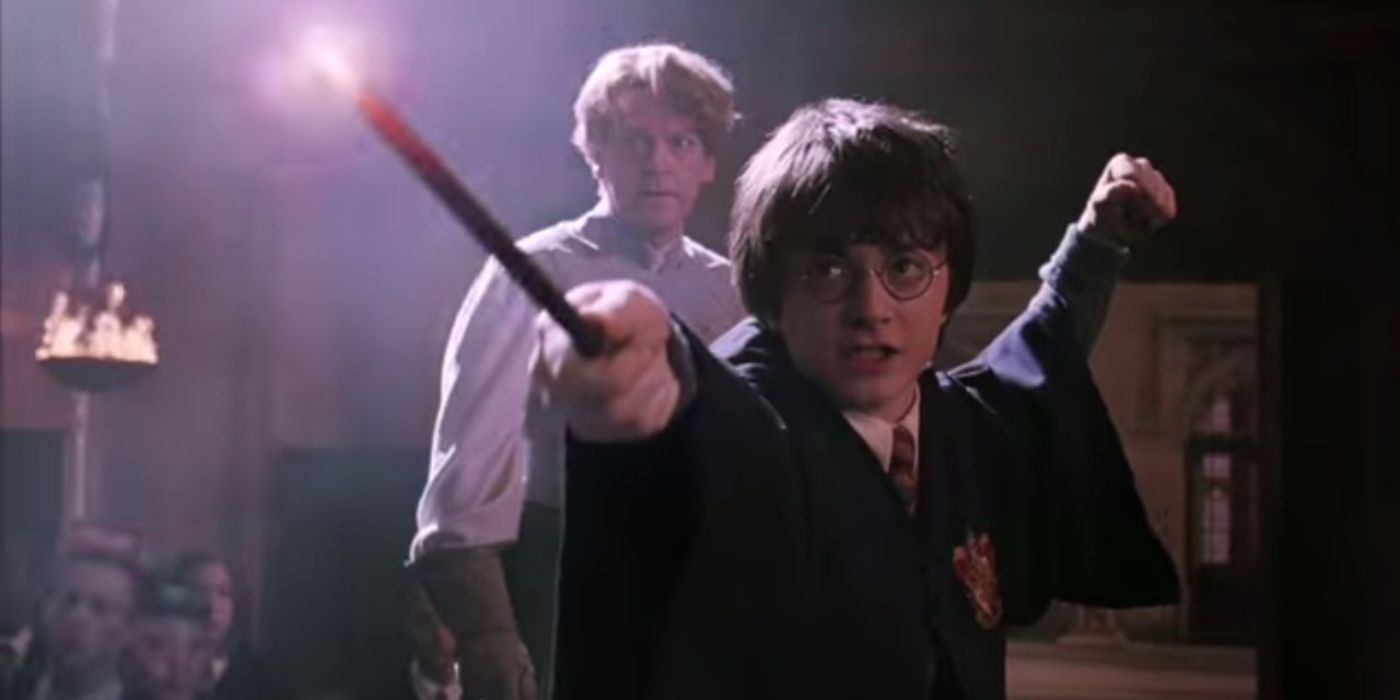Shockingly, the title wizard doesn’t intentionally cast any spells in Harry Potter and the Philosopher’s Stone, but his hesitancy is fitting for his background. Harry Potter goes on to become one of the most powerful and talented wizards of all time, having learned enough spells and mastered his magical ability to permanently defeat Voldemort. While this would eventually prove to be the case, Harry’s path to magical greatness was initially more restrained, with his fellow wizards making far more progress with spells as new Hogwarts students than the Boy Who Lived.
While Harry does sparingly use magic in Harry Potter and the Philosopher’s Stone, the young wizard doesn’t successfully or intentionally cast any spells in his first year as a Gryffindor student at Hogwarts. When he does perform magic, it’s inadvertent or non-incantatory, such as accidentally freeing the snake and using Parseltongue at the zoo, successfully using magic to pull his broom up to his hand, and mistakenly shooting magic from wands at Ollivanders. While Harry unsuccessfully attempts to perform the "Wingardium Leviosa" spell, his friends are seen using several incantations like "Oculus Reparo," failed transfiguration spells, and "Alohamora" to varying results.
Why Harry Doesn't Use Spells In The Philosopher's Stone
Before becoming a great wizard, Harry Potter was foreign to the world of magic. Harry didn’t know magic was real, much less that he possessed the ability before receiving his Hogwarts letter at age 11. The last time Harry had truly engaged with magic before Philosopher’s Stone was when Voldemort used the killing curse on him at age 1, so the notion of using magic and casting spells was completely alien to him. For characters like Ron and Draco who grew up in magical families, magic was second nature, so quickly practicing spells and successfully casting them was expected in their first year at Hogwarts.
Although Hermione had muggle parents, she had been studying magic and working on spells before the train ride to Hogwarts, which Harry didn’t have the chance or support to do. Harry Potter and the Philosopher’s Stone was the character’s introduction to the world of magic, where Harry went from being a wide-eyed observer to understanding the shocking importance he bore to the community’s lore. After getting used to the concept and potential of magic in his first year at Hogwarts, Harry could become more comfortable with his abilities in his second year. Additionally, 11-year-old Harry Potter was more concerned with the truth of his parents Lily and James’ deaths than successfully using the “Wingardium Levisoa” spell in class.
What The First Spell Harry Casts Actually Is
Harry Potter and the Chamber of Secrets features the first spell that Harry successfully casts. Since using floo powder isn’t technically a spell, the first incantation that Harry uses with a wand is “Rictusempra,” which he utters when facing Draco Malfoy in Gilderoy Lockhart’s Duelling Club. “Rictusempra,” known as the Tickling Charm, sent Draco flying back across the room, though was meant to weaken him with laughter. While the Chamber of Secrets book does include Draco bursting into an uncontrollable fit of laughter, Harry’s charm only works to blast Draco further back in the movie, perhaps due to Harry’s inexperience with hexes.
Although “Rictusempra” is Harry’s first successful spell, he becomes more notable for two other big charms: the Disarming Charm “Expelliarmus” and the Patronus Charm “Expecto Patronum.” In fact, Harry was only supposed to use a disarming spell when dueling Draco Malfoy in the Chamber of Secrets, so his first spell after Harry Potter and the Philosopher’s Stone technically should have been “Expelliarmus.” Likely because it wasn’t cast with the intended effects the first time, Harry Potter is never seen using “Rictusempra” again in the film series.



